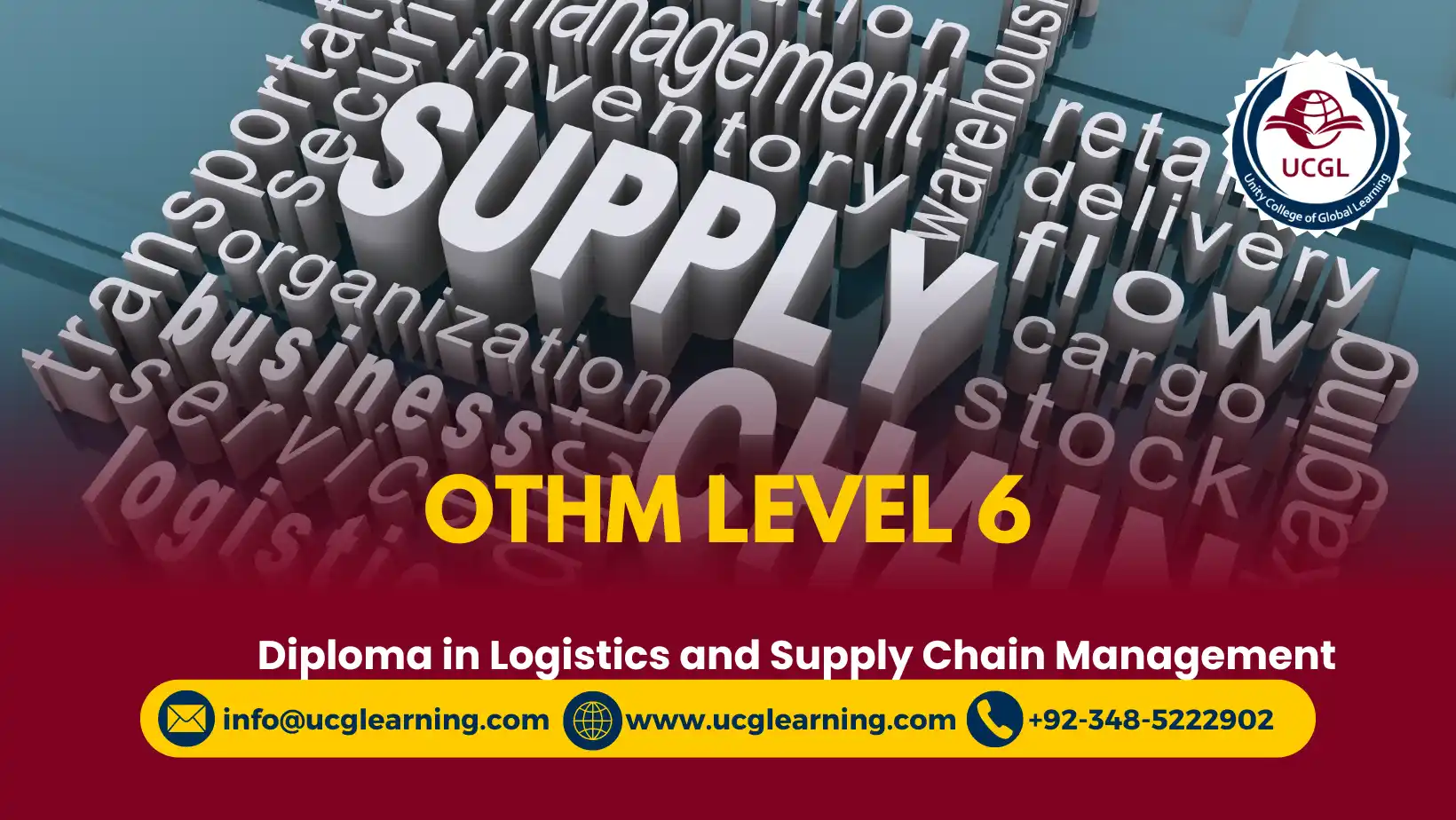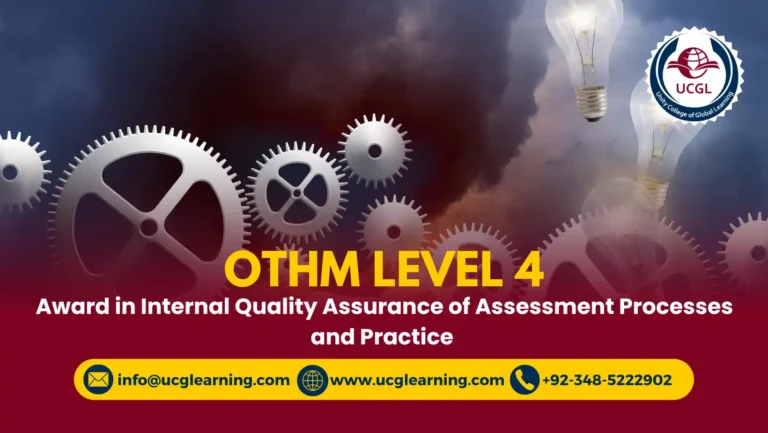OTHM Level 6 Diploma in Logistics and Supply Chain Management
The course covers a broad range of topics essential for effective logistics and supply chain management. Students will explore various aspects of supply chain operations, including procurement, inventory management, transportation, warehousing, and distribution. The curriculum is designed to provide a deep understanding of the end-to-end supply chain process and the critical role logistics plays in the success of any business.
Course Introduction
The Level 6 Diploma in Logistics and Supply Chain Management is designed to equip professionals with the advanced skills and knowledge necessary to excel in the logistics and supply chain industry. This course is ideal for those looking to enhance their strategic and operational capabilities in a sector that is vital to global commerce. Whether you are an experienced professional or someone seeking to break into this dynamic field, this diploma offers comprehensive training that aligns with industry standards and demands.
Course Benefits
- Industry-Relevant Skills: Gain practical skills that are directly applicable to the logistics and supply chain industry.
- Career Advancement: Enhance your qualifications and open up new career opportunities in a growing sector.
- Expert Instruction: Learn from experienced professionals with extensive industry knowledge.
- Global Perspective: Understand global logistics and supply chain challenges and solutions.
- Networking Opportunities: Connect with peers and industry leaders through course forums and events.
Course Study Units
- Entrepreneurship Development (20 credits)
- Global Logistics and Supply Chain Management (20 credits)
- International Logistics Management (20 credits)
- Project Management (20 credits)
- Strategic Procurement (20 credits)
- Supply Chain Planning and Control (20 credits)
Learning Outcomes
- Entrepreneurship Development (20 credits):
- Identify and evaluate entrepreneurial opportunities within different business environments.
- Develop business plans incorporating market analysis, financial projections, and risk assessment.
- Apply entrepreneurial strategies to initiate and manage new ventures or business units.
- Demonstrate effective leadership and communication skills essential for entrepreneurial success.
- Global Logistics and Supply Chain Management (20 credits):
- Analyze global logistics networks and assess their impact on supply chain efficiency.
- Design and optimize international logistics strategies for seamless operations across borders.
- Evaluate logistics risks and implement contingency plans to ensure continuity of supply.
- Apply international trade regulations and compliance standards to logistics operations.
- International Logistics Management (20 credits):
- Plan and coordinate international transportation and distribution networks.
- Manage customs procedures and documentation requirements for global trade operations.
- Optimize inventory management strategies to minimize costs and improve service levels.
- Evaluate performance metrics and implement continuous improvement initiatives in international logistics.
- Project Management (20 credits):
- Initiate, plan, execute, monitor, and close projects using industry-standard project management methodologies.
- Allocate resources effectively and manage project budgets to achieve project objectives.
- Mitigate project risks and resolve conflicts using negotiation and stakeholder management skills.
- Communicate project progress, outcomes, and lessons learned to stakeholders through reports and presentations.
- Strategic Procurement (20 credits):
- Develop procurement strategies aligned with organizational goals and market conditions.
- Negotiate contracts and agreements with suppliers to achieve favorable terms and conditions.
- Apply sourcing techniques and supplier relationship management principles to enhance procurement efficiency.
- Evaluate ethical and sustainability considerations in procurement practices.
- Supply Chain Planning and Control (20 credits):
- Forecast demand and plan inventory levels to meet customer requirements while minimizing costs.
- Implement supply chain visibility tools and demand planning models for efficient resource allocation.
- Manage supply chain disruptions through risk assessment and mitigation strategies.
- Optimize supply chain processes and performance metrics using lean and agile principles.
These learning outcomes aim to equip students with the knowledge and skills necessary to excel in roles related to entrepreneurship, global logistics, international trade, project management, procurement, and supply chain planning and control within various organizational contexts.
Who Is This Course For?
This course is suitable for:
- Professionals currently working in logistics and supply chain roles who wish to advance their careers.
- Individuals seeking to enter the logistics and supply chain industry.
- Business owners and managers who want to improve their supply chain operations.
- Recent graduates looking to specialize in logistics and supply chain management.
Future Progression
Graduates of the Level 6 Diploma in Logistics and Supply Chain Management can pursue various career paths, including:
- Supply Chain Manager
- Logistics Manager
- Operations Manager
- Procurement Manager
- Inventory Control Specialist
- Transportation Coordinator
Additionally, this diploma provides a strong foundation for further studies, such as a Level 7 Diploma in Strategic Management and Leadership or an MBA with a focus on logistics and supply chain management.
The Level 6 Diploma in Logistics and Supply Chain Management is an excellent opportunity to gain specialized knowledge and skills in a critical industry. With a comprehensive curriculum and practical learning approach, this course prepares you for a successful career in logistics and supply chain management, ensuring you are well-equipped to meet the challenges of this dynamic field.







